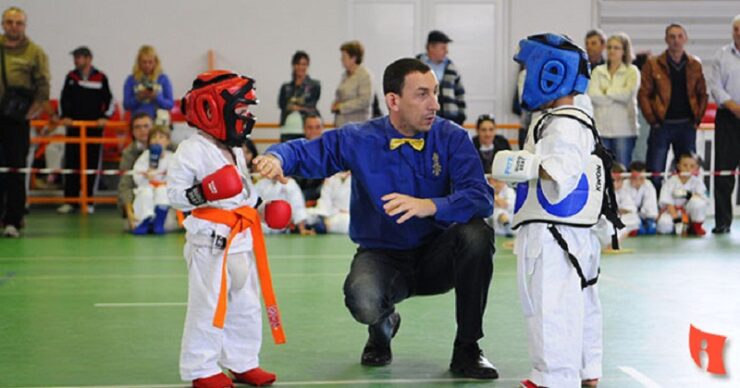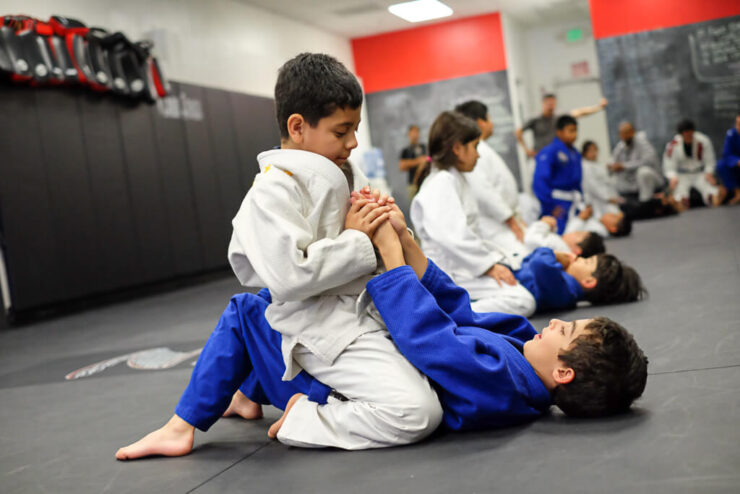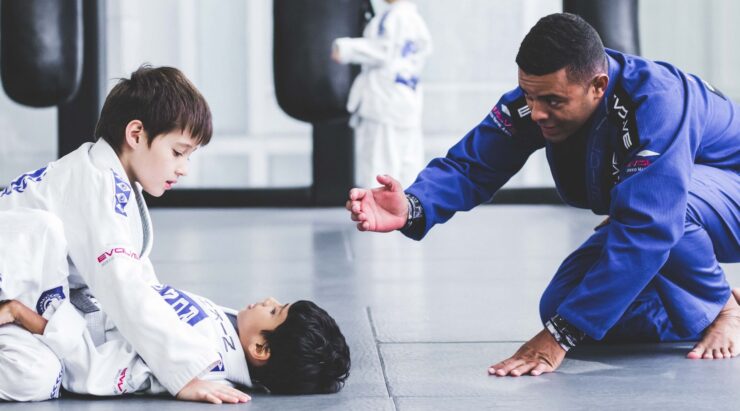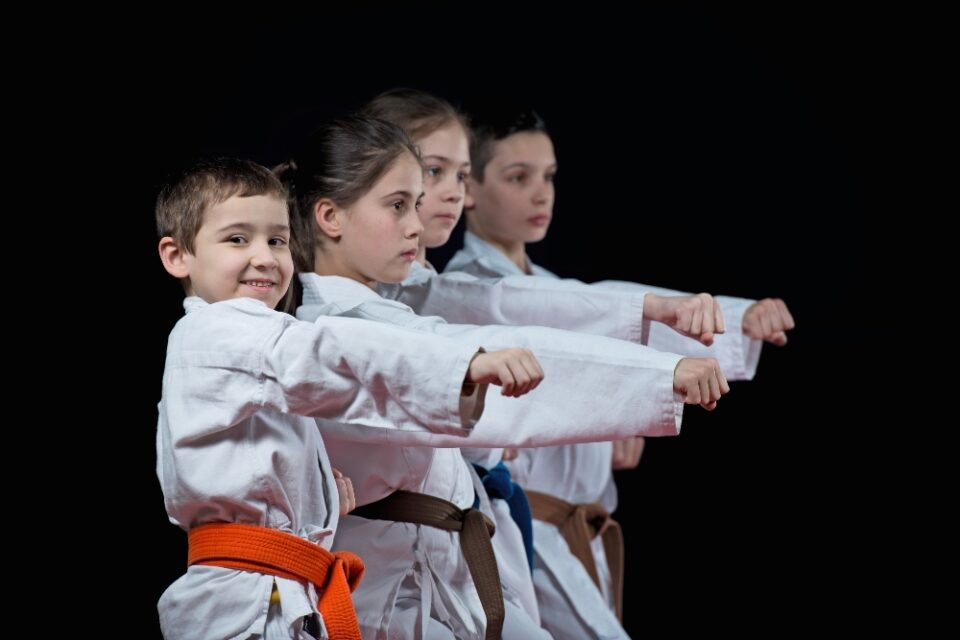From the playful echoes of playdates to the disciplined echoes of karate classes, the trajectory of a child’s development is vast and varied. Early childhood is a pivotal time, shaping the cornerstone of a child’s emotional, cognitive, and physical development. Here, introducing activities that are not just engaging but also educational is crucial. Enter the world of early martial arts education, a realm that goes beyond teaching mere punches and kicks. It molds young minds, fostering attributes like discipline, respect, and focus, which are integral in cultivating well-rounded individuals.
What is Early Martial Arts Education?

Early martial arts education refers to specialized programs designed for young children, typically aged 3 to 7, to introduce them to the basic concepts and practices of martial arts. The curriculum is tailored to be age-appropriate, focusing on developing fundamental skills like balance, coordination, and discipline, rather than advanced combat techniques. The goals are multifaceted, aiming to instill values like respect, focus, and self-control while promoting physical fitness and healthy lifestyle habits. These programs are more than just a physical activity; they are a holistic approach to early childhood development.
Physical Fitness and Coordination
In a world increasingly driven by screens and sedentary lifestyles, kids karate classes serve as a dynamic outlet promoting physical fitness and agility from a young age. Children engage in exercises and drills that enhance muscle strength, flexibility, and endurance, laying a solid foundation for a healthy life. The emphasis on coordination and balance is particularly beneficial, helping in the development of motor skills which are essential for everyday activities and other sports. This physical development is not just about building stronger bodies but about creating a harmonious connection between the mind and body.
Discipline and Self-Control
One of the core tenets of martial arts is discipline. The structured environment of a martial arts class teaches children the importance of following rules and instructions. They learn the value of self-control and restraint, understanding that the skills they acquire are for self-defense and not aggression. This ingrained discipline transcends the dojo, impacting their behavior at home, school, and in various aspects of life. It helps in molding responsible and thoughtful individuals who are mindful of their actions and decisions.
Focus and Concentration

Martial arts are not just a physical endeavor but a mental one. It requires a high level of concentration and focus. For children, this is particularly beneficial, as it trains their minds to be present and attentive. This heightened focus can translate into improved academic performance and better task management. The ability to concentrate on one task at a time is a valuable skill, helping children in their studies and other pursuits, allowing them to absorb information more efficiently and effectively.
Respect and Etiquette
Respect is a fundamental value taught in martial arts. Children learn to show reverence to their instructors, peers, and the art itself. This respect is manifested through various etiquettes like bowing and using polite language. The emphasis on mutual respect creates a positive learning environment, fostering a sense of community and belonging. The infusion of these values from a young age is instrumental in shaping individuals who are considerate, empathetic, and respectful of diverse perspectives and cultures.
Confidence and Self-Esteem
The journey through martial arts is one of continuous learning and achievement. As children master new skills and earn belts, they experience a sense of accomplishment, bolstering their confidence and self-esteem. This newfound self-assurance enables them to face challenges with resilience and poise. The stories of transformation are abundant, with shy and introverted children evolving into assertive and self-reliant individuals, ready to explore the world with newfound zeal and enthusiasm.
Conflict Resolution and Bullying Prevention
The philosophy of martial arts revolves around peace and self-defense. Children learn techniques to de-escalate situations and resolve conflicts amicably. They are taught the importance of non-violent resolutions and are equipped with skills to protect themselves and others in precarious situations. This training is crucial in addressing bullying, empowering children to stand up for themselves and others, fostering a sense of responsibility and compassion.
Social Skills and Teamwork

Martial arts classes are vibrant, communal spaces where children have the opportunity to interact with diverse peers, enriching their understanding of different cultures and backgrounds. These interactions are structured and guided, designed to facilitate the development of essential social skills and the formation of lasting friendships. The lessons often involve paired or group activities that emphasize collaborative learning, fostering a sense of teamwork and mutual support.
By engaging in these group activities, children learn the importance and value of working together towards common goals and shared success. They encounter different perspectives and learn to navigate and appreciate varying approaches to problem-solving, enriching their social experiences and understanding of relationships. These experiences are vital and foundational, diligently building a sense of camaraderie and a nuanced understanding of collective effort and unity, thus significantly impacting their ability to work in harmony with others in the future.
Goal Setting and Achievement
Martial arts education is steeped in the practice of setting and achieving goals. Children learn to work towards earning new belts and mastering new techniques, understanding the value of persistence and effort. This experiential learning in goal setting is invaluable, helping children in developing a growth mindset and resilience, which are pivotal in pursuing personal and academic aspirations.
Healthy Lifestyle Habits

Beyond the physical and mental aspects, martial arts education fosters a holistic approach to well-being. It encourages healthy lifestyle choices, emphasizing the importance of nutrition, regular exercise, and mental wellness. These teachings are integral in establishing lifelong habits that contribute to overall well-being and happiness, equipping children with the knowledge and values to lead balanced and fulfilling lives.
Conclusion
The benefits of early martial arts education are myriad and profound, extending beyond physical fitness to encompass mental strength, moral values, and life skills. It molds young individuals into disciplined, focused, and respectful members of society. It empowers them with confidence, resilience, and a sense of responsibility. The lessons learned in the dojo resonate in every facet of their lives, fostering well-rounded individuals ready to navigate the complexities of the world. For parents and caregivers seeking enriching experiences for their children, the world of martial arts is a realm worth exploring, promising not just skills but invaluable life lessons.



